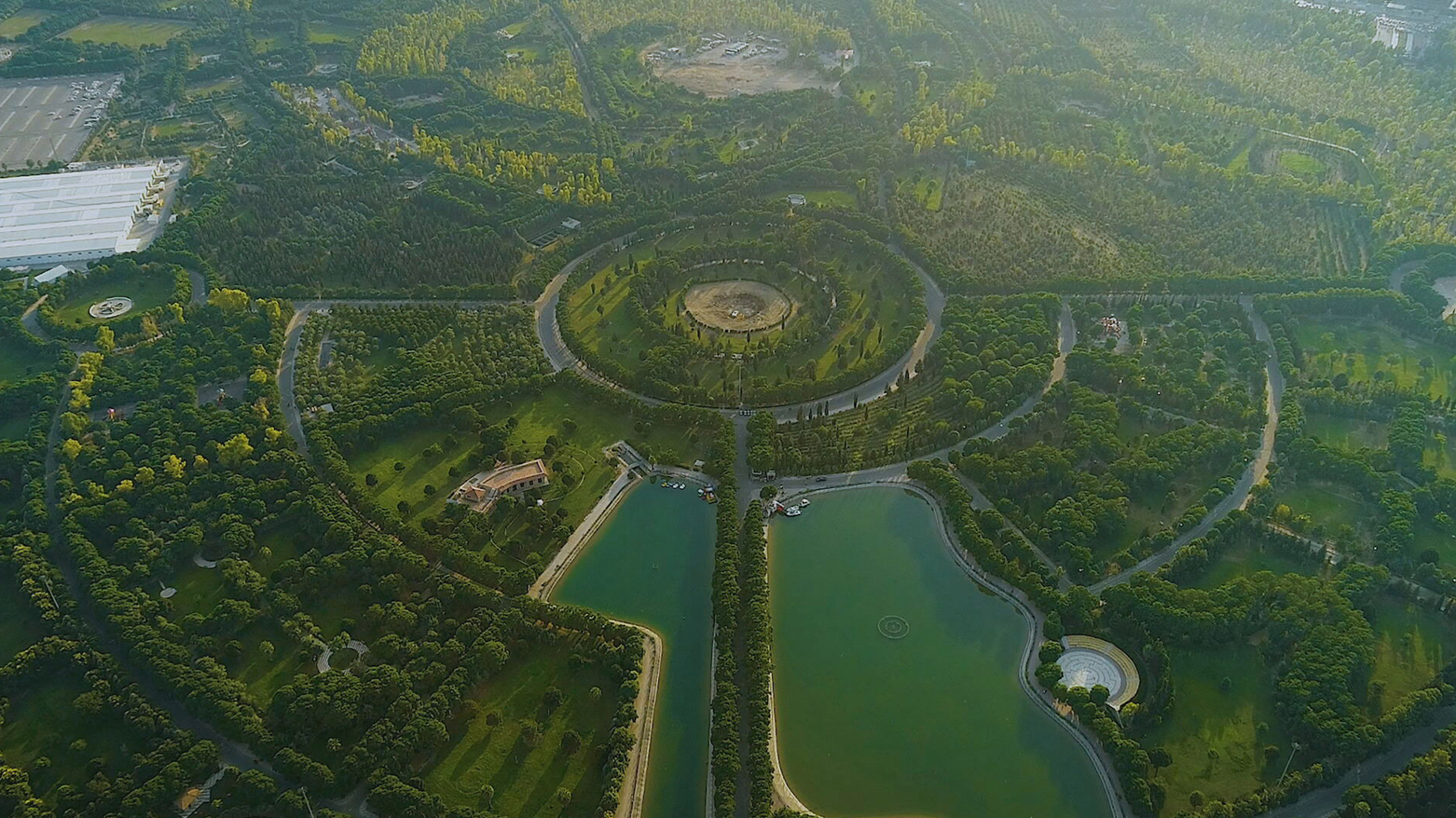Erbil's Massive Green Belt Project to Boost Greenery by 25%, Combat Rising Temperatures
Erbil's massive Green Belt project will increase the city's greenery by 25% and help lower temperatures, officials announced. The 85-kilometer-long, two-kilometer-deep belt is a key part of the capital's master plan to combat climate change and guide urban growth.

ERBIL (Kurdistan24) – Erbil Municipality Head Karzan Hadi has announced that the city's ambitious Green Belt project, a sweeping environmental initiative now under implementation, will dramatically increase the capital's green spaces by 25 percent upon completion and serve as a crucial tool in lowering soaring summer temperatures.
This massive undertaking, which will see a two-kilometer-deep, 85-kilometer-long ring of forests and parks encircle the city, is a central part of Erbil's master plan and a key strategic project championed by the Kurdistan Regional Government (KRG) to combat climate change and guide sustainable urban growth.
Speaking during his participation in the Basi Roji program on Kurdistan24 on Thursday, Hadi provided a detailed update on the project's scale and anticipated impact.
"The green belt project in Erbil is being worked on on an area of more than 13 thousand dunams of land," he announced. He explained that this vast new green space will significantly elevate the city's environmental standing. "Upon the completion of the project it will increase the percentage of greenery by 25%, because now the percentage of greenery is 18%," he stated.
The project is being rolled out in eight distinct zones. According to Hadi, the zone currently under implementation will, on its own, increase the city's total greenery by 5 percent.
He emphasized that once the entire belt is finished, Erbil will meet and even exceed international standards for urban green space, a key indicator of a city's livability and environmental health. This, he noted, will have a direct and tangible effect on the climate of the rapidly growing metropolis. "This is besides that it will be a cause for lowering the degrees of heat," Hadi confirmed.
The implementation of the Green Belt, a long-envisioned project that was revived by the decision of KRG Prime Minister Masrour Barzani, officially began in early August 2025.
As previously reported by Kurdistan24, the first phase covers an area of 12,900 dunams, with local companies contracted to carry out the work. The initial steps have involved securing the perimeter by installing fences and preparing the land for planting, starting in the area from Bahrka towards the Mosul road.
This initiative is not merely an environmental project but a strategic vision for Erbil's future, designed to manage the city's expansion out to the year 2050.
As Erbil has experienced rapid population and urban growth, the Green Belt is intended to act as a natural shield, restoring environmental balance, preventing urban sprawl, and protecting the city from pollution and desertification.
The selection of trees and plants for the belt is being guided by a scientific approach, with soil tests conducted to determine the most suitable species. Erbil Municipality officials have previously stated a focus on planting thousands of olive and pistachio trees, chosen for their resilience and their potential to create economic opportunities and jobs for local citizens.
The project has been compared to successful green belt initiatives in major cities around the world, from London's famous belt established to curb urban sprawl to Beijing's "Great Green Wall" aimed at combating sandstorms.
In a press conference in August, Erbil Governor Omed Khoshnaw highlighted the project's transformative potential. "With the creation of these greenbelts, Erbil’s environment, air quality, and overall livability will reach a new stage, while also enhancing the city’s visual appeal," he stated. He noted that the project will also feature more than 10 large ponds to ensure a sustainable irrigation system for the vast number of trees.
The Green Belt is one of several major infrastructure projects that are fundamentally reshaping Erbil. Alongside the Emergency Water Project, which is designed to solve the city's water scarcity issues for the next 30 years, these initiatives have already sparked a real estate boom in the capital's outlying areas.
As reported by Kurdistan24 in August, the arrival of these essential services and the formalization of land ownership have caused property values to soar, signaling a new wave of economic activity and confidence in the city's long-term development.
The implementation of the Green Belt project, a vision that for years existed only on paper, is now a tangible reality on the ground, promising a greener, healthier, and more sustainable future for the residents of the Kurdistan Region's capital.
